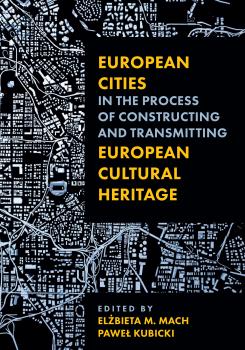Researching the City as an Educational Space .......... 35
Streszczenie
The city should not only be understood as a geographical area or urban space, but primarily as a place in which multicultural communities live, and one which represents a reservoir of cultural heritage. The inhabitants of cities are not only the heirs of the results of historical events (including difficult and shameful ones), the achievements and memories of past generations, but the process of interactive participation means they also are the creators of elements of cultural heritage that will be preserved and passed on to future generations. In the process of creating, protecting and transmitting the cultural heritage of cities (as a component of a broadly understood European culture), education plays a significant role. It should constitute a source of cultural competences, fostering an awareness of the cultural diversity of both local communities and European societies (seen from a historical and contemporary perspective), promoting skills of coding and decoding cultural messages, and building sensitivity, openness and attitudes of tolerance towards diversity. As the bearers of such competences, both city dwellers and tourists have the chance to discover the cultural richness of a place, to choose which elements of cultural achievements they deem valuable and worthy of transmission to future generations. This chapter introduces the reader to research methods that help to uncover the values of the cultural heritage of the city, and it reveals the elements which individual family resources have in common with European cultural heritage, and which will be able to anchor locality in Europeanness and root the family traditions of newcomers in the local cultural heritage of the city.





